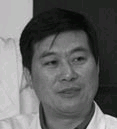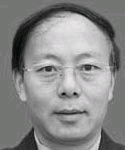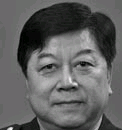This article was first published in November 2009.
(Minghui.org) It has been over 20 years since China's army, under the control of the Chinese Communist Party (CCP), opened fire on students and citizens in the Tiananmen Square Massacre on June 4, 1989. During the last 20 years, it has not been involved in any war outside of China, and the peace-keeping force it has sent abroad is only an engineering battalion. However, the communist regime's military forces have set a world record in the last ten years in performing organ transplant operations. The current head of the Ministry of Health of the General Logistics Department, Major General Zhang Yanling, who used to serve as President of the No. 2 Military Medical University, openly said in a statement published on Xinhua.net, "In 1978, there were only three hospitals in the entire military forces that were able to perform kidney transplants. Now, we have 40 hospitals capable of conducting organ transplants of liver, kidney, heart, lungs and multi-organ transplants, making up a quarter of the total number of organ transplants in China."
According to the World Organization to Investigate the Persecution of Falun Gong (WOIPFG), of the over 150 army hospitals in China, many of them are engaged in organ transplants. Browsing the websites of these hospitals, one can easily see that the number of organ transplants carried out by the military hospitals is rather shocking, and these published figures are only the officially sanctioned numbers. That is, these numbers are only the tip of the iceberg. The actual figure has yet to be revealed.
Dong Jiahong, Director of the Hepatobiliary Surgery Department of the General Hospital of the People's Liberation Army (PLA 301 Hospital), was transferred to Beijing in 2006, after he led an organ transplant team that carried out 700 liver transplants using new surgical technology at the Southwest Hospital of the Third Military Medical University in Chongqing. The Department of Hepatobiliary Surgery of Southwest Hospital was identified as a key laboratory in the military forces for liver transplants in 2001. In 2005 this hospital was approved by the General Logistics Department to become an Organ Transplant Center of the PLA, with a capacity for conducting six liver transplants simultaneously and a total number of 200 liver transplants per annum. The center also helps and guides 21 medical institutions in the provinces of Jiangsu, Shandong, Guangdong, Shaanxi, Henan, Yunnan, Sichuan, Xinjiang, Guizhou, Fujian, and Guangxi in their development in the area of liver transplants. The hospital has also become a training center for teaching the surgical technology of liver transplantation.

Dong Jiahong, Director of the Hepatobiliary Surgery Department of the General Hospital of the People's Liberation Army
The Organ Transplant Research Institute of Changzheng Hospital, affiliated with the No. 2 Military Medical University, was established in December 2003 with the approval of the General Logistics Department of the PLA. Between April 22 and 30, 2005, just nine days, the research institute carried out 16 liver transplants and 15 kidney transplants. As its websites boasted, "It has broken a new record in terms of transplants per unit time."
The PLA No. 452 Hospital is located in Sichuan Province. In about 2000, the hospital was poorly equipped and there was a shortage of doctors. The hospital had debts of close to 10 million yuan, and it was locally regarded as a township level hospital. In 2002, the head of the hospital, Zhang Cong, signed an agreement with a local entrepreneur, who invested 8 million yuan in the hospital to conduct kidney transplants. During the time they cooperated, the entrepreneur would give the hospital 1.2 million per year and offer free services to the army. As a result, the No. 452 Hospital carried out 331 kidney transplants, rating it No.1 in Sichuan Province. In 2007, after the hospital made a profit of 7 million yuan, it purchased all the facilities and the operation ownership from the entrepreneur at a cost of 4 million yuan. What the No. 452 Hospital did attracted the attention of the PLA health system, and many other military hospitals followed suit.

Zhang Cong, Head of No. 452 Hospital
Regarding other military hospitals, the General Hospital of Jinan Military Zone is a medium-sized hospital, but it has carried out over 1500 kidney transplants since 1978. Since 1999, the number of kidney transplants increased to over 100 per year. The General Hospital of Chengdu Military Zone carried out eight kidney transplants in five days. There was a report carried on page B4 of Liaoxi Business Press on May 23, 2006, entitled "The noble realm and pursuit of a military doctor." The report said that Chen Rongshan, Director and Chief Surgeon of the Urology Surgery Center of the No. 250 Hospital of the PLA, had in the last few years "... carried out as many as 568 kidney transplants, with a success rate of 100 percent, and around 98 percent of the patients lived more than one year, ... his professional skills rate No.1 in Liaoxi, and many patients came to him for treatment, including patients from Taiwan, Singapore, South Korea and Malaysia."
War Doesn't Drive Organ Transplants
The most detailed US army report on injuries in a time of war is the WDMET report, in which it collected data on casualties. Of all casualties, 37.2 percent suffered head injuries, 36.4 percent suffered chest injuries, and only 9.2 percent suffered fatal injuries in the abdominal area. As the US army began to use more Kevlar bullet-proof vests, the torso got more protection, and the ratio of injuries to the unprotected limbs increased by a large margin. Doctors in the US army at the front lines were mostly those that specialized in trauma surgery, general surgery, and bone surgery. The chances of fatal injury to the liver from a gunshot in the battlefield was not high.
The US army has been engaged during the last 50 years. However, its best equipped Walter Reed Army Medical Center has only conducted around 30 organ transplants per year. Of the 250 hospitals in the US that carry out organ transplants, only 8 of them are affiliated with a VA Hospital (for veteran servicemen). Moreover, these hospitals have to invite local doctors to conduct the transplant operations; the army hospitals only provide the facilities. Therefore, organ transplants are carried out in cooperation with nearby large hospitals. For example, the US army hospital in Portland was the first to conduct liver transplants among the US army hospitals. From 1989 to date, it has only operated on 252 cases. However, the Department of Hepatobiliary Surgery of Southwest Hospital carried out over 200 liver transplants in one year, equivalent to the total number of liver transplants carried out in a US army hospital of a similar level in 20 years. Furthermore, Shi Bingyi, director of the Organ Transplant Center in the No. 2 Affiliated Hospital to the PLA General Hospital, has in recent years personally completed over 1580 kidney transplants and over 360 liver transplants. In comparison, the total number of organ transplants carried out in the largest US army hospital per year doesn't even make up a rounding error for the number of the organ transplants done by the armed forces in China.

Shi Bingyi, Director of the Organ Transplant Center in No. 2 Affiliated Hospital to the PLA General Hospital
Why Does an Army Not at War Engage in Organ Transplants?
Since the 1980s, the Chinese military hospitals have begun to offer services to society at large for a fee, and the military hospitals' goal is no longer to "maximize effect" but, instead, to "maximize profit." Since the reforms in the medical market in the early 1990s, medical service became commercialized and now pursues profits. For military hospitals, this change was like a timely rainfall, because offering their services internally would never result in profits. However, there was much profit to be made by offering services outside the military, and there was nothing to restrain them. In a very short time the military hospitals started to view treatment of soldiers as a burden, and they have gone from not offering full treatment in the beginning to rejecting treatment of soldiers altogether. Moreover, the PLA military hospitals have now turned into "standard local hospitals and "sanatoriums" for high-ranking officers, and these hospitals have long since gone from "serving soldiers" to "serving officers" and "serving for money."
All military hospitals charge the same fees as local hospitals, and they operate like local hospitals. The income from medicines in most army hospitals account for over half of the total income from medical treatment. In fact, army hospitals also function as local hospitals; the only differences are that military hospitals are totally funded by the military budget and the staff is in uniform and managed by the military system.
The military hospitals saw that potentially huge profits were to be made in organ transplants, so they pushed forward organ transplantations without restraint and placed themselves in an advantageous position by having a large source of organs, which could not be matched by local hospitals. For example, a reporter from Sound of Hope International Radio Network contacted Li Honghui, director of the Kidney Transplant Center of Yuquan Hospital, the No. 2 Affiliated Hospital of Qinghua University. Li Honghui told the reporter that because there were more sources of organs in Chengdu City in Sichuan, he was transferred there to help out at the local military hospitals. Xu Yahong, who has over 22 years of work experience at an air force hospital in Chengdu, said that he personally carried out over 500 organ transplants, at an average of over 100 per year in the last two or three years. He also directly told the reporter on the phone that they used kidneys from Falun Gong practitioners.
Dong Jiahong, Director of the Hepatobiliary Surgery Department of the General Hospital of the PLA, made the following calculation during an interview with Xinhua.net: If a liver cancer patient has an operation to remove his liver at a three A-level provincial hospitals, the average cost for such an operation is 20,000 to 30,000 yuan, but the cost for a liver transplant is ten times that. A liver transplant would cost around 200,000 yuan. On top of this, the patient would need to take anti-rejection medication for the rest of his life, which would cost 50,000 to 100,000 yuan per year. Consequently, organ transplants not only result in huge profits from the operations themselves, but because the patients have to take medication for the rest of their lives, hospitals continue to make huge profits for years to come. It is like a live bank deposit account, which gets interest every year.
An independent investigative report by David Matas and David Kilgour quoted website information published by the Organ Transplant Center of the 309 Clinical Section of the PLA General Hospital in April 2002: "The Organ Transplant Center is the key profit-making department in our section. The gross income in 2003 was 16.07 million yuan, and from January to June in 2004 it was 13.57 million yuan. This year (2004), we expect it to exceed 30 million yuan."
When the pursuit of profit intersected with persecution policies (especially the persecution of Falun Gong), the unique profession of organ transplantation fit both bills, and thus it developed very rapidly in military hospitals of the Communist regime.
Category: Organ Harvesting





